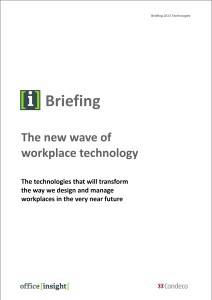February 12, 2013
Tech and media companies continue to reshape the world’s cities
 Tech and media companies continue to shape the world’s cities and local property markets according to a recent report from BNP Paribas. While this is a global phenomenon, some of the most dramatic developments will take place in London, not least a shift of tech firms in the city away from their heartland towards Kings Cross following Google’s $1bn purchase of 2.4 acres of land within a major new development in the area. The new development may become a hothouse for technology companies in spite of the UK Government’s focus on promoting Tech City and surrounding areas in East London. (more…)
Tech and media companies continue to shape the world’s cities and local property markets according to a recent report from BNP Paribas. While this is a global phenomenon, some of the most dramatic developments will take place in London, not least a shift of tech firms in the city away from their heartland towards Kings Cross following Google’s $1bn purchase of 2.4 acres of land within a major new development in the area. The new development may become a hothouse for technology companies in spite of the UK Government’s focus on promoting Tech City and surrounding areas in East London. (more…)








 A new report from Deloitte has highlighted what it believes are the key trends in the market for telecommunications, media and technology as part of its annual TMT Predictions research project. Amongst other things it predicts a slowdown in the uptake of Bring Your Own device polices, the enduring appeal of the laptop, a change in the way we protect our data and devices, and the annual market for smartphones hitting one billion units for the first time as 4G takes off in the UK.
A new report from Deloitte has highlighted what it believes are the key trends in the market for telecommunications, media and technology as part of its annual TMT Predictions research project. Amongst other things it predicts a slowdown in the uptake of Bring Your Own device polices, the enduring appeal of the laptop, a change in the way we protect our data and devices, and the annual market for smartphones hitting one billion units for the first time as 4G takes off in the UK.



















